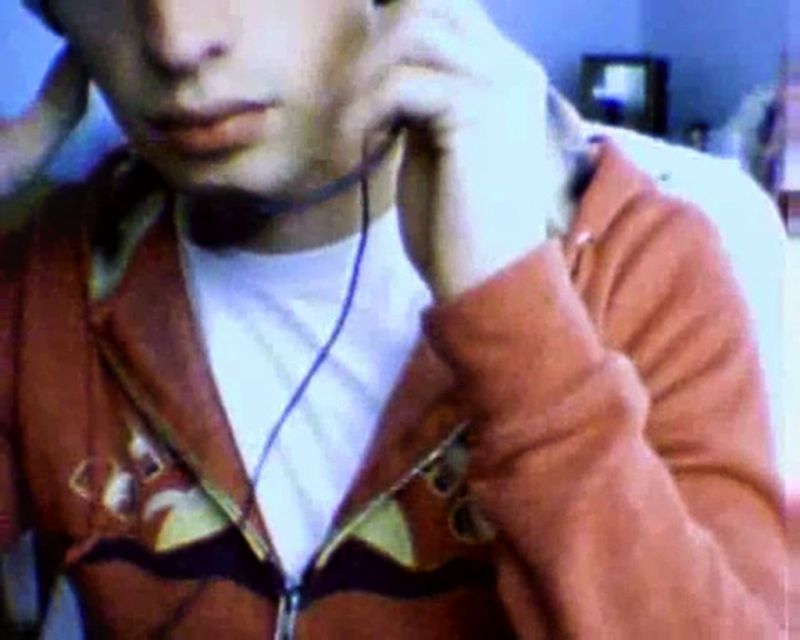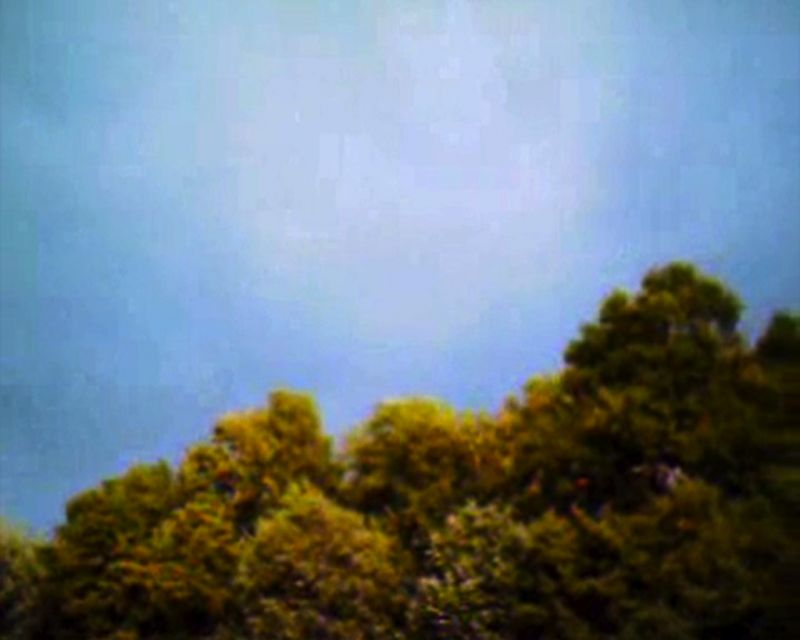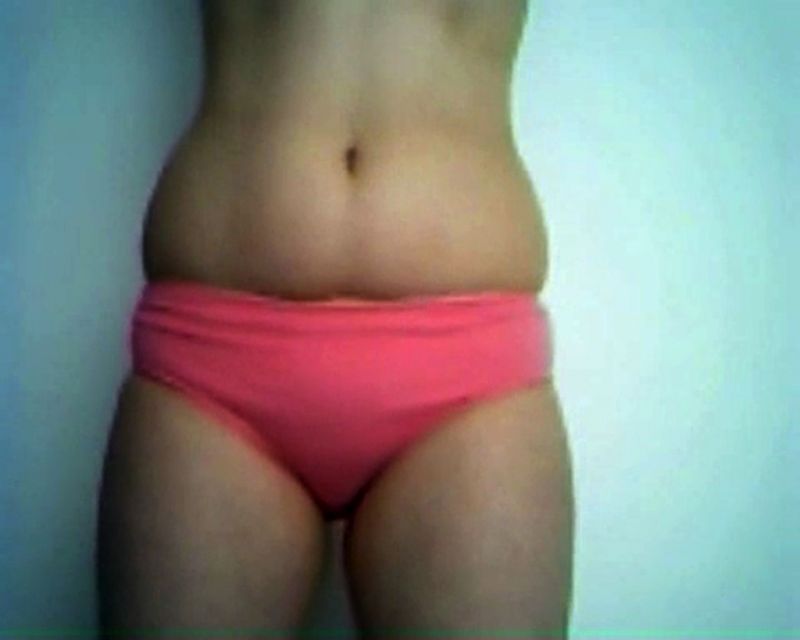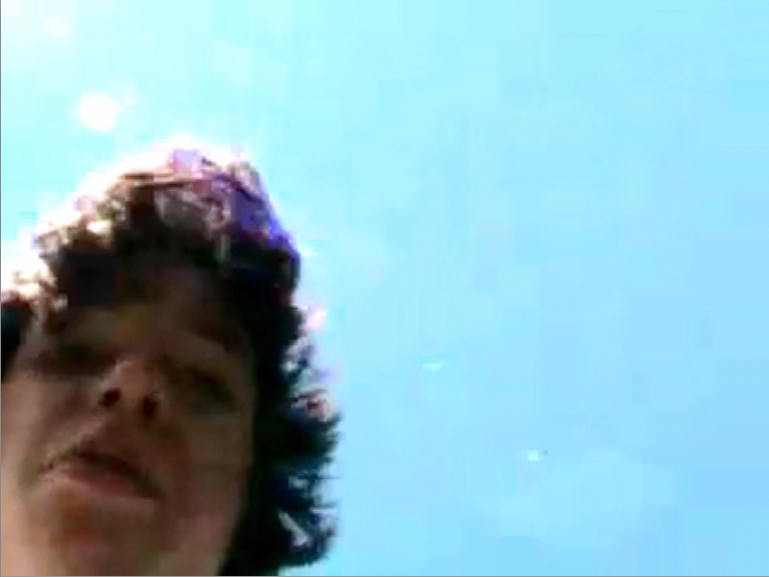
Die Zeit: “Do you concern yourself with new media and technology?”
Jean-Luc Godard: “I try to keep up. But people make films on the Internet to show that they exist, not in order to see something”.
– Die Zeit, 16.12.2008
There is a great sadness in this world. A sadness that is spreading through our networks, invading our bodies, infecting our souls. It’s not like it’s taking us by surprise. Perhaps it has been there all along, as long as we care to remember. At least since the ghosts of progress made their appearance, and we suddenly found ourselves moving through a world cluttered with things. Cinema saw it coming all along. It was Charlie Chaplin who told us the story of the dehumanization of 20th century industrialism, when our bodies were taken away from us for the sake of speed and efficiency. But at least then, it seemed, we were still capable of being human. It was Michelangelo Antonioni who captured the growing sense of alienation in modern society, in his haunting images of estranged, fractured figures wandering through industrial landscapes, unfit to relate, unable to communicate. Slow burning emptiness became perfect loneliness. But then a strong, warm wind made its way and overthrew this emotional landscape. It was Chris Marker, amongst others, who documented this collective outcry for freedom and imagination; its powerful rise, and its tragic decline; from revolutionary action to cynical spectacle. It was also Marker who, during one of his many travels, witnessed the becoming of another, even more invasive, form of alienation. What he saw was a city that looked like “Planet Manga”, occupied with “pictures bigger than people, voyeurizing the voyeurs”; a giant hologram where life itself had become nothing but a simulation effect. As of then we knew our old world had started to disappear, right in front of our very eyes.

The void reigns, they say. Ever since the last decades of our previous century, when the deep effects of the neo-liberal turn were becoming evident and the promise of an all-connected world started to (im)materialize, the alienation of our times has taken a heavy stranglehold on our daily lives. As if what we experience is no longer the pulse of life, but only the cardiogram. In this post-industrial landscape, we are being overloaded with signs, unleashing endless chains of consumption, decoding, interpretation and response. With our attention constantly under siege, breathing has become difficult. We’re increasingly living in “real-time” mode, without the shadow of a past, or the light of a dream. No more maps we can trust, no more destinations to reach. The only way left to navigate this schizophrenic universe is to keep on surfing the incoming semiotic waves, wading through the chatter and fluff circulating in the infosphere. As we’re going through the motions, we’re constantly pressed to (re)act. Because the dominant pathology of our times is no longer produced by repression or suppression, but precisely by the injunction to express and confess. Saying out loud what we feel, think and see is no longer a choice, but an obligation. “Just do it”, claims Franco “Bifo” Berardi, has become the thumping mantra of the first networked generations who, deprived of any energy coming from desire or (com)passion, can do nothing but adhere to the violent logic of belonging.

“I feel like it’s an opening in an otherwise very lonely world, full of misunderstandings and regrets. So thank you to everyone for making this a community I want to be part of.” Somewhere in the deep shadows of YouTube.world a silent whisper resounds, without resolution or conclusion. In this cruel theatre of teenage blues and growing pains, broken hearts and contrite spirits, the dark side of our souls is laid bare for all to see. What we are confronted with is a cosmos of fear, anxiety, insecurity and disillusionment, expressed by bodies and voices reaching out to be understood and loved, without any hope of succeeding. Bloggers and vloggers, writes Geert Lovink, are “trapped by their own inner contradictions in the Land of No Choice”. Like the characters in Michel Houellebecq’s novels, we cope with our coded lives and branded souls by projecting our own loneliness and indifference on to the world. In this time of radical uncertainty, it turns out the Web not only functions as a mirror, but also as a projection field. And so we find ourselves in this estranged twilight zone between the public and the private, amidst a never-ending stream of micro-confessions and intimate exposures. As if we could still believe the truth would set us free. We want to believe so badly, that we fail to see that what the contemporary info-cracy facilitates is not Truth, but Nothingness.

Alone together, at last. We know we are being watched, but we don’t mind. If this is what it takes to prove we exist, to feel we belong, bring it on. We’re scared and confused, but that’s ok, because we know you are too: after all, you’re not that different anyway. Our cams are always there, almost always on. We can feel the eagerness of your gaze, but still we remain the same – “for real” – locked in our bittersweet solitude, with our bodies sealed in signs. Rather than continue to be victims of the image, we decide to become image. Because we want to be seen. Because we are visual. As if we are two-dimensional, only skin-deep. No more depth, only transparency. No matter if there’s nothing to show, nothing to say. No matter if there’s ultimately nothing left to see. We take comfort in this Nothingness. Disappearing behind our images is our way to protect ourselves from Being. No worries anymore that our images could be stolen from us, or that we should give up our precious secrets, because we no longer have any. There are no illusions or scruples left: all will be revealed for the sake of appearances; all except, perhaps, for the Truth. Take a close look. Here we are now, desperate bodies without desire, crude visuals without necessity or consequence. Here we are. Welcome to the spectacle of banality.
A reflection on ‘Because We Are Visual’, a wonderful video-essay by Olivia Rochette & Gerard-Jan Claes (2010, 47’, produced by KASKfilms). All stills taken from the video. Inspiration: Lovink, Bifo and Baudrillard, of course.